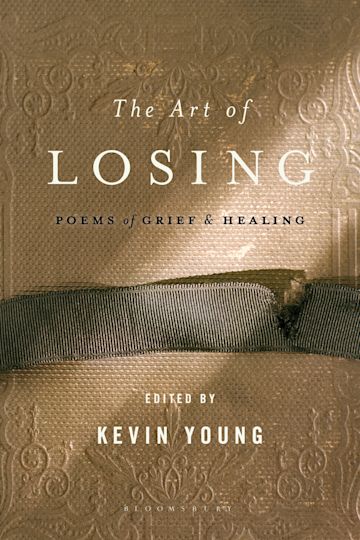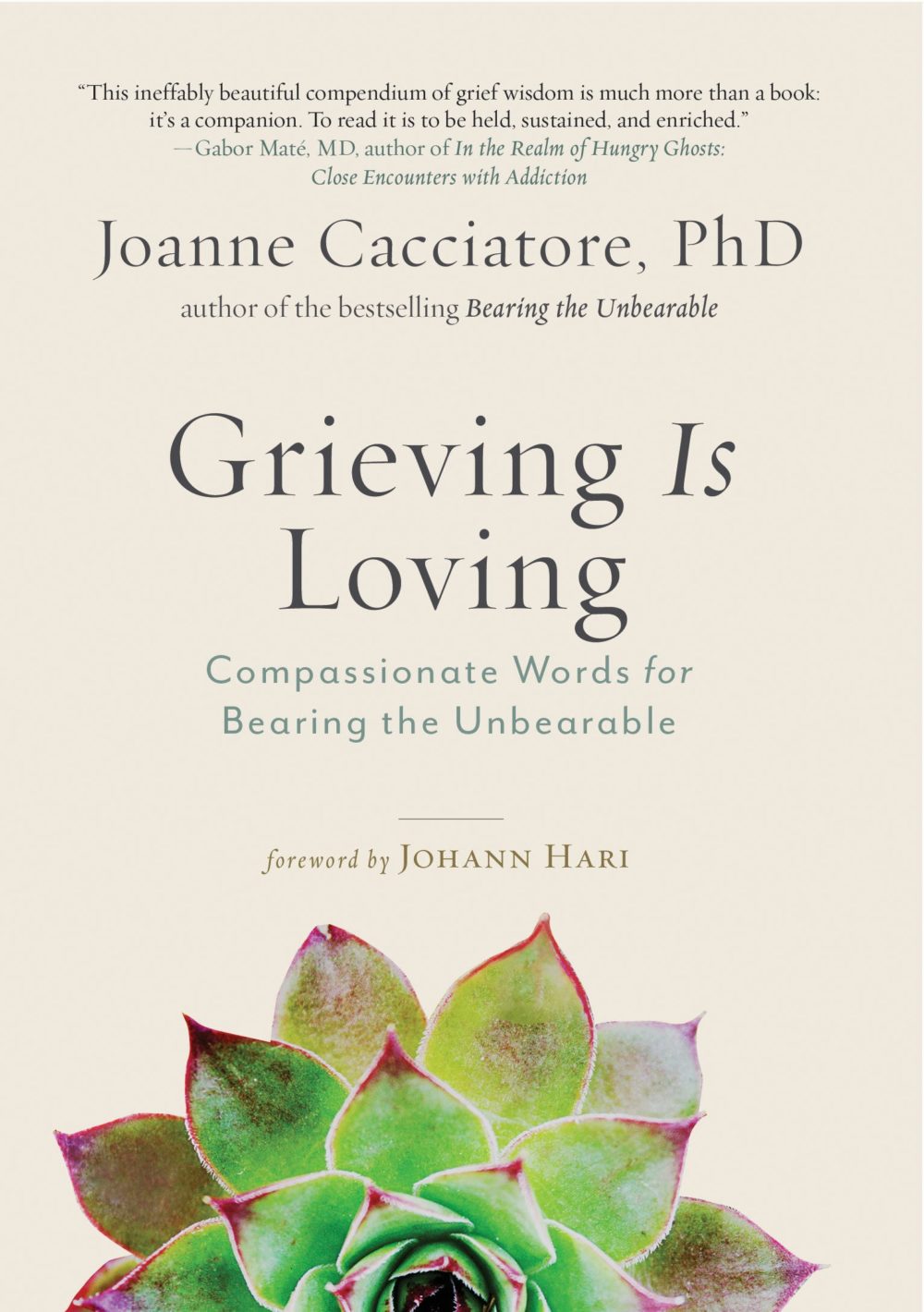When Children Lose Siblings, They Face an Increased Risk of Death
By Aaron E. Carroll — 2017
Of all the possible tragedies of childhood, losing a sister or brother to early death is almost too awful to contemplate. Yet it is startlingly common.
YOU MIGHT ALSO LIKE
CLEAR ALL
BY TOPIC
BY TEACHER
BY TYPE
FILTER

TOPIC
- Talk Therapy (77)
- Facing Own Death (51)
- Death or Loss of a Loved One (39)
- Anxiety (36)
- Cancer (33)
- Depression (28)
- Honoring Emotion (28)
- Death-Positive Movement (27)
- Hospice (26)
- Trauma Healing (25)
- Death or Loss of a Sibling (22)
- Death or Loss of a Parent (19)
- Guilt (19)
- Neuroscience (19)
- Afterlife (18)
- Death or Loss of a Child (18)
- Finding Meaning (18)
- Stress Management (18)
- Traumatic Grief (18)
- Fear (17)
- Resilience (17)
- Self-Care (17)
- Loss of Partner/Spouse (16)
- Self-Healing (15)
- Trauma (15)
- Parenting (14)
- Spiritual Crisis (14)
- Compassion (13)
- Habit Formation (13)
- Search for Purpose (13)
- Stress (13)
- Athlete Well-Being (12)
- BIPOC Well-Being (12)
- Emotional Intelligence (EQ) (12)
- Near-Death Experience (12)
- Relationship Challenges (12)
- Self-Esteem (12)
- Suicide (12)
- Brain Health (11)
- Life Challenges (11)
- Suffering (11)
- Well-Being (11)
- Anger (10)
- Black Well-Being (10)
- Buddhism (10)
- Child’s Emotional Growth (10)
- Mindfulness (10)
- Offering Support to Others (10)
- Shame (10)
- Communication Skills (9)
- Family Dynamics (9)
- Mental Health Challenges (9)
- Positive Thinking (9)
- PTSD (9)
- Self-Reflection Practices (9)
- Addiction (8)
- Courage (8)
- Inner Peace (8)
- Mind-Body Connection (8)
- Physical Health (8)
- Vulnerability (8)
- Awareness (7)
- Children’s Well-Being (7)
- Criticism and Rejection (7)
- Dark Night of the Soul (7)
- Forgiveness (7)
- Goal Setting (7)
- Happiness (7)
- Identity (7)
- Mindfulness Practices (7)
- Negative Self-Talk (7)
- Self-Compassion (7)
- Self-Discovery (7)
- Self-Limiting Beliefs (7)
- Tibetan Buddhism (7)
- Transformation (7)
- Chronic Anxiety (6)
- Community Healing (6)
- Despair (6)
- Divorce and Breakup (6)
- Entrepreneurship (6)
- Meditation (6)
- Memoir (6)
- Motivation (6)
- Past Lives and Reincarnation (6)
- Psychology (6)
- Rebirth (6)
- Self-Acceptance (6)
- Self-Worth (6)
- Setting Limits and Boundaries (6)
- Suicide Loss Survivor (6)
- Women’s Well-Being (6)
- ADD/ADHD (5)
- Anger Management (5)
- Confidence (5)
- Consciousness (5)
- Empowerment (5)
- Gratitude (5)
- Habits of Mind (5)
- Handling a Loved One’s Illness (5)
- Hope (5)
- Living with Illness (5)
- Loss of an Animal Companion (5)
- Neuroplasticity (5)
- Peak Performance (5)
- Presence (5)
- Psychology and Spirituality (5)
- Spiritual Life (5)
- Veteran Well-Being (5)
- Addiction Recovery (4)
- Asking for Help (4)
- Astral Projection (4)
- Authenticity (4)
- Chronic Pain (4)
- Connection with Nature (4)
- Decision Making (4)
- Eating Disorders (4)
- Faith (4)
- Imagination and Creativity (4)
- Immortality (4)
- Journaling (4)
- Kindness (4)
- Letting Go (4)
- Loneliness (4)
- Neurodiversity (4)
- Performance Anxiety (4)
- Positive Self-Talk (4)
- Romantic Relationships (4)
- Self-Development (4)
- Speaking Your Truth (4)
- Spiritual Awakening (4)
- Activism/Service (3)
- Adaptability (3)
- Aging (3)
- Belonging (3)
- Breathwork (3)
- Caregiver Well-Being (3)
- Child’s ADD/ADHD (3)
- Clinical Depression (3)
- Cognitive Behavioral Therapy (3)
- Curiosity (3)
- Doubt (3)
- Dysfunctional Childhood (3)
- Endurance (3)
- Failure (3)
- Global Challenges (3)
- Goddess (3)
- Inner Strengths (3)
- Intergenerational Trauma (3)
- Joy (3)
- Karma (3)
- Love (3)
- Military to Civilian Re-entry (3)
- Neuropsychology (3)
- Prayer (3)
- Racial Healing (3)
- Science and Spirituality (3)
- Self-Mastery (3)
- Self-Pressure (3)
- Self-Realization (3)
- Shadow (3)
- Social Anxiety (3)
- Social Psychology (3)
- Spiritual Growth (3)
- Spiritual Healing (3)
- Toxic Relationships (3)
- Transpersonal Psychology (3)
- Values (3)
- Yoga (3)
- Alcohol Addiction (2)
- Attachment Theory (2)
- Autoimmune Disease (2)
- Biofeedback (2)
- Body Image (2)
- Body Positivity (2)
- Child’s Anxiety (2)
- Child’s Challenging Behavior (2)
- Child’s Trauma (2)
- Christianity (2)
- Chronic Health Conditions (2)
- Collective Trauma (2)
- Connection (2)
- Diet and Nutrition (2)
- Drug Addiction (2)
- Ego Dissolution (2)
- Empathy (2)
- Exercise (2)
- Fellowship and Community (2)
- Focus (2)
- Forest Bathing (2)
- Grace (2)
- Growth Mindset (2)
- Healthy Eating (2)
- Holism (2)
- Human Potential (2)
- Hypnosis (2)
- Integrative Medicine (2)
- LGBTQIA Well-Being (2)
- Memory (2)
- Mentoring (2)
- Mindfulness Meditation (2)
- Narcissism (2)
- OCD (2)
- Optimism (2)
- Othering (2)
- Panic Attacks (2)
- Philosophical Approaches (2)
- Positive Psychology (2)
- Post-Traumatic Growth (2)
- Race and Gender (2)
- Racial Identity (2)
- Regret (2)
- Self-Love (2)
- Situational Depression (2)
- Soul Mission (2)
- Spiritual Development (2)
- The Divine (2)
- Transitions (2)
- Visions and Hallucinations (2)
- Visualization (2)
- Young Adult Well-Being (2)
- Zen Buddhism (2)
- AAPI Well-Being (1)
- Abandonment (1)
- Academic Struggles (1)
- Acceptance (1)
- Accepting Love (1)
- Acupressure (1)
- Affirmations (1)
- Art Therapy (1)
- Autism (1)
- Building Culture (1)
- Burnout (1)
- Cannabis/CBD (1)
- Chakras (1)
- Channeling (1)
- Child’s Autism (1)
- Christian Mysticism (1)
- Clairvoyance and Precognition (1)
- Codependency (1)
- Compassion Fatigue (1)
- Creative Well-Being (1)
- Cross-Cultural Dynamics (1)
- Disconnection (1)
- DMT (1)
- Domestic Abuse (1)
- Ego (1)
- Energy Healing (1)
- Environmental Justice (1)
- Existentialism (1)
- Female Empowerment (1)
- Freedom (1)
- Friendship (1)
- Gender and Spirituality (1)
- Generosity (1)
- Genetics (1)
- God (1)
- Guided Meditation (1)
- Healing Approaches (1)
- Heartmath (1)
- Higher Calling (1)
- Highly Sensitive People (1)
- Holotropic Breathwork (1)
- Illness and Injury (1)
- Indigenous Healing Approaches (1)
- Inner Child (1)
- Inspiration (1)
- Intention (1)
- Jealousy/Envy (1)
- Job Loss (1)
- Judaism (1)
- Latinx Well-Being (1)
- Laughter Therapy (1)
- Leadership (1)
- LGBTQIA Children (1)
- Life Force Energy (1)
- Living as an Empath (1)
- Longevity (1)
- Male Friendship (1)
- Marriage (1)
- Masculine/Feminine Dynamics (1)
- Midlife Crisis (1)
- Moral Philosophy (1)
- Motherhood (1)
- Native American Beliefs (1)
- Neopaganism (1)
- Nutritional Medicine (1)
- Past Life Regression (1)
- Performance Pressure (1)
- Personality Disorders (1)
- Poetry (1)
- Pregnancy and Childbirth (1)
- Psilocybin (1)
- Psychedelic Journey (1)
- Psychedelic-Assisted Therapy (1)
- Psychic Abilities (1)
- Psychoanalysis (1)
- Quantum Physics (1)
- Racism (1)
- Relationship with Time (1)
- Rest (1)
- Self-Actualization (1)
- Self-Expression (1)
- Self-Reliance (1)
- Sexuality (1)
- Shamanism (1)
- Shared-Death Experience (1)
- Sleep (1)
- Social Justice (1)
- Social Responsibility (1)
- Somatic Practices (1)
- Spiritual Practices (1)
- Spiritual Quest (1)
- Spirituality and Health (1)
- Storytelling (1)
- Telepathy (1)
- Trust (1)
- Vitamin Supplementation (1)
- Willpower (1)
- Work Challenges (1)
- Work-Life Balance (1)
- Youth Activism (1)
FILTER

TEACHER
- Atul Gawande (5)
- Lisa Feldman Barrett (5)
- Stanislav Grof (5)
- Stephen Levine (5)
- Elizabeth Lesser (4)
- William Bloom (4)
- BJ Miller (3)
- Gabor Maté (3)
- Joan Halifax (3)
- Mirabai Starr (3)
- Mitch Albom (3)
- Ondrea Levine (3)
- Oprah Winfrey (3)
- Ram Dass (3)
- Raymond Moody (3)
- The Dalai Lama (3)
- Andrew Solomon (2)
- Cynthia Bourgeault (2)
- Daniel Amen (2)
- Daniel J. Siegel (2)
- Frank Ostaseski (2)
- Jane E. Brody (2)
- John Bradshaw (2)
- John Sarno (2)
- Karla McLaren (2)
- Megan Devine (2)
- Neale Donald Walsch (2)
- Rick Hanson (2)
- Russell Brand (2)
- Sam Harris (2)
- SARK (2)
- Terri Cole (2)
- Thich Nhat Hanh (2)
- Thomas Moore (2)
- Alain de Botton (1)
- Amishi Jha (1)
- Amit Goswami (1)
- Andrew Holecek (1)
- Andrew Weil (1)
- Angeles Arrien (1)
- Bessel van der Kolk (1)
- Biet Simkin (1)
- Blaise Aguirre (1)
- Brené Brown (1)
- Buddha (1)
- Caroline Myss (1)
- Carolyn Baker (1)
- Chip Conley (1)
- Chögyam Trungpa (1)
- Colleen Saidman Yee (1)
- Connie Zweig (1)
- Cyndi Dale (1)
- Daniel Goleman (1)
- David J. Wolpe (1)
- Deepak Chopra (1)
- Diane Stein (1)
- Eckhart Tolle (1)
- Elaine Aron (1)
- Elizabeth Gilbert (1)
- Frederic Luskin (1)
- Gangaji (1)
- Gary Zukav (1)
- Gerald Jampolsky (1)
- Gordon Neufeld (1)
- Harriet Lerner (1)
- Huston Smith (1)
- Hyla Cass (1)
- Iskra Lawrence (1)
- Iyanla Vanzant (1)
- Jack Kornfield (1)
- James Doty (1)
- Jan Willis (1)
- Jana Long (1)
- Jay Shetty (1)
- Joan Borysenko (1)
- Joan Chittister (1)
- Kathleen Dowling Singh (1)
- Kristin Neff (1)
- Lama Tsultrim Allione (1)
- Leah Guy (1)
- Lindo Bacon (1)
- Lise Van Susteren (1)
- Lodro Rinzler (1)
- Lori Gottlieb (1)
- Louise Hay (1)
- Luisah Teish (1)
- Maria Sirois (1)
- Mark Nepo (1)
- Matthieu Ricard (1)
- Mel Robbins (1)
- Michael Bernard Beckwith (1)
- Michelle Cassandra Johnson (1)
- Michio Kaku (1)
- Mihály Csíkszentmihályi (1)
- Mirabai Bush (1)
- Mooji (1)
- Nataly Kogan (1)
- Nicole LePera (1)
- Nikki Mirghafori (1)
- Noah Elkrief (1)
- Paramahansa Yogananda (1)
- Pema Chödrön (1)
- Pope Benedict XVI (1)
- Poppy Jamie (1)
- Rachel Naomi Remen (1)
- Ralph De La Rosa (1)
- Ralph Metzner (1)
- Rob Bell (1)
- Roberto Assagioli (1)
- Ruby Wax (1)
- Sadhguru (1)
- Starhawk (1)
- Stephanie Y. Evans (1)
- Tara Brach (1)
- Tony Gaskins Jr. (1)
- Viktor E. Frankl (1)
- Wayne Muller (1)
- Yongey Mingyur Rinpoche (1)
- Zinovia Dushkova (1)










